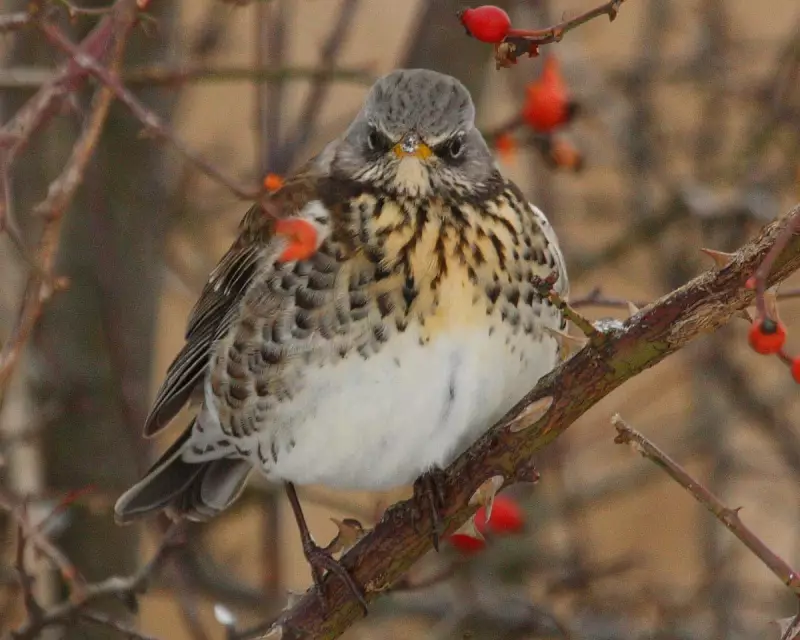
A silent crisis is unfolding in the British countryside, driven by the unrelenting pace of our changing climate. Berry-bearing shrubs and trees across the UK are fruiting significantly earlier than historical norms, creating a potentially catastrophic mismatch with the natural calendar of the birds that depend on them for winter survival.
The Unseen Consequence of a Warming Climate
While many discuss rising temperatures and extreme weather, few have considered the profound impact on the intricate timing of nature. Data reveals that warmer springs are triggering early flowering, which in turn leads to berries ripening weeks, and sometimes even months, ahead of schedule. This shift might seem minor, but its repercussions for wildlife are severe.
A Feast Gone Before the Guests Arrive
The most vulnerable are winter-visiting birds, such as the fieldfare and redwing, which migrate to the UK's milder shores from Scandinavia and Iceland. These species rely heavily on a winter bounty of berries from hawthorn, rowan, and holly to fuel them through the coldest months.
The critical issue is a tragic timing error: by the time these migrants arrive, the early-ripened berries have often already been devoured by resident bird populations or have simply rotted and fallen from the branches. This leaves precious little food for the newcomers, threatening their ability to survive the winter.
Broader Implications for UK Biodiversity
This phenomenon is more than just a problem for a few bird species; it is a stark indicator of a ecosystem falling out of sync.
- Nutritional Value Loss: Berries that ripen too early may not develop their full nutritional profile, offering poorer sustenance.
- Chain Reaction: Bird populations that struggle to find food may decline, affecting other parts of the ecosystem.
- Garden Birds at Risk: Native species like blackbirds and thrushes, which also depend on winter berries, will face increased competition for a dwindling resource.
A Call for Awareness and Action
This situation underscores the complex and often unexpected ways in which climate change destabilises our natural world. It highlights the urgent need for continued research and conservation efforts focused on supporting vulnerable wildlife through these rapid environmental shifts. Understanding these subtle changes is the first step towards mitigating their impact and protecting the UK's rich biodiversity for future generations.





